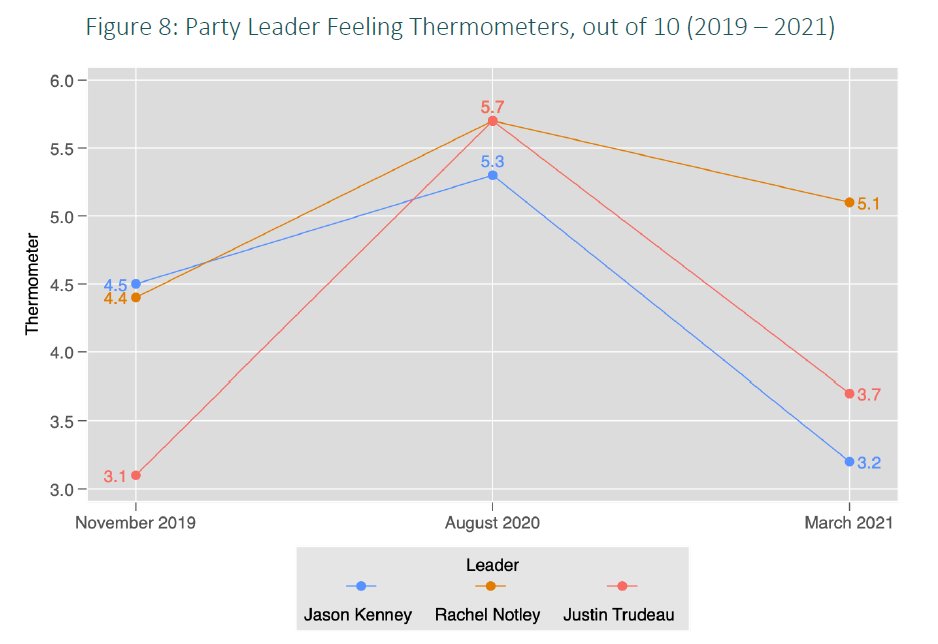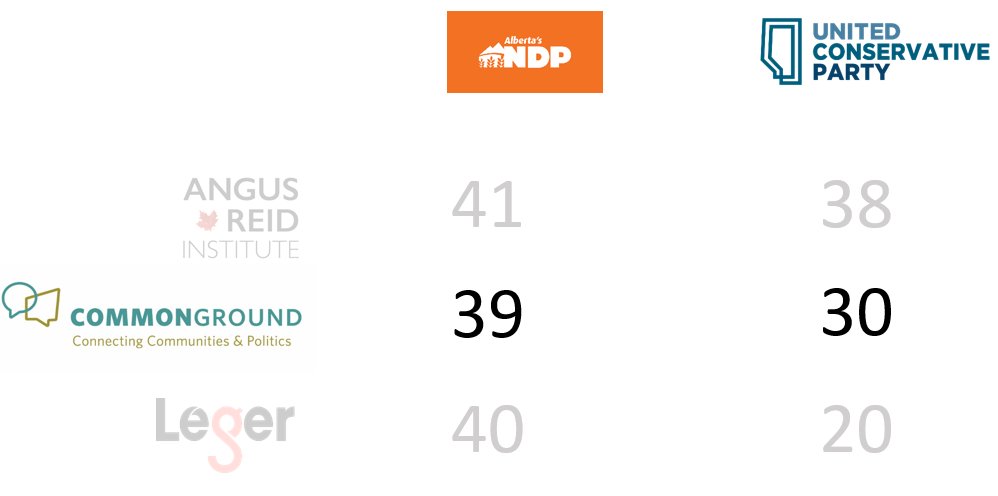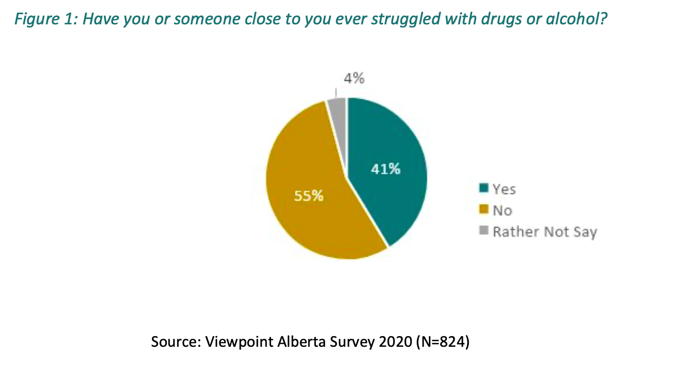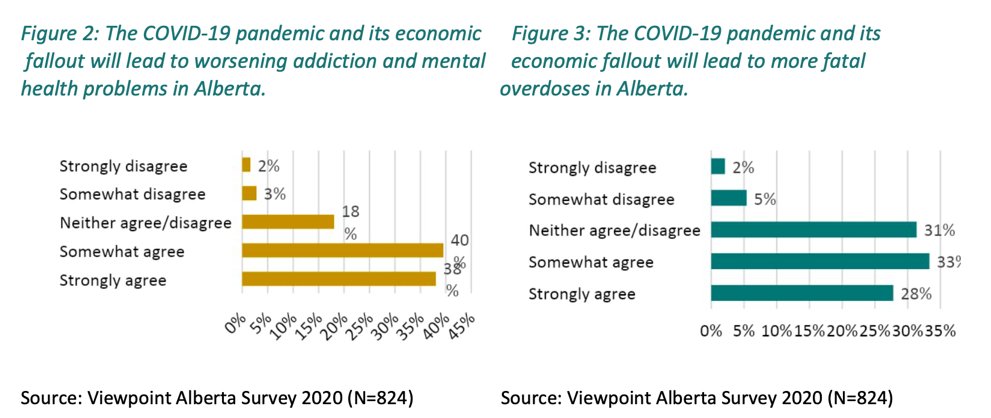
Our latest Viewpoint Alberta survey shows the @AlbertaNDP (39%) ahead of the @Alberta_UCP (30%). @DrJaredWesley & @FSnagovsky uncover the sources of this year’s seismic shift in Alberta party politics. #ableg #abpoli #cdnpoli drive.google.com/file/d/1PCDPwY…
Our measures of party support align well with those from Canada’s leading polling firms, both of whom were in the field at the same time as us (first week of March 2021). 



UCP support continues its steady but slowing decline. A key change since August 2020: NDP support has climbed nearly 12 points. 

The NDP is drawing much of this newfound support from voters who cast ballots for the Liberals, Alberta Party, and UCP in the 2019 provincial election. 

On the left, the progressive and centrist vote is consolidating around the NDP.
On the right, old divisions are deepening among the components of the UCP coalition. #ableg #abpoli
On the right, old divisions are deepening among the components of the UCP coalition. #ableg #abpoli

While women were first to leave the UCP fold during the first wave of the pandemic, men have since followed. The NDP now holds an 9-point edge over the UCP among men and an 8-point edge among women. 

The NDP has continued its steady growth in suburban areas. The party’s sudden rise during the second wave of the pandemic was built largely on 17-point gains in urban and rural areas. 

In regional terms, the UCP leads only in Central Alberta. Big NDP gains in the South (+17) and Calgary (+11) have put the party ahead in those regions. #ableg #abpoli 



After a modest bump at the end of the first wave of the pandemic, all major party leaders at the provincial and federal levels saw a dip in popularity in 2021. Only @RachelNotley and @theJagmeetSingh remain more popular than unpopular, sustaining a pandemic-long pattern. 



Overall, the issue landscape continues to favour the UCP, but the NDP is gaining. The economy remains the most important issue to the largest number of Albertans and the UCP hold a 43 to 29 lead over the NDP among economy-minded voters…. 



...Yet, the NDP is gaining among economy voters and holds advantages in healthcare, education,and civil rights. When asked which party was closest to them on their preferred issue, 38 percent of people responded “the NDP” (+8 since August 2020) and 30 percent, “the UCP” (-2).
With Alberta’s next scheduled election taking place in early-2023, these findings are far from definitive when it comes to predicting who will form the next provincial government...
...If the NDP is able to maintain this momentum, and the UCP is unable to reverse its decline, the 2023 provincial election campaign could look more like 2015 than 2019. #ableg #abpoli
For more on this study, see our latest Research Brief. drive.google.com/file/d/1PCDPwY…
Stay tuned here or on our website for future research briefs on COVID-19, the Fair Deal, Alberta separatism, and more. commongroundpolitics.ca/viewpoint-albe…
The Viewpoint Alberta project is co-led by @loleen_berdahl and @drjaredwesley. It is funded by @KIASAlberta and @usaskartsci.
• • •
Missing some Tweet in this thread? You can try to
force a refresh







